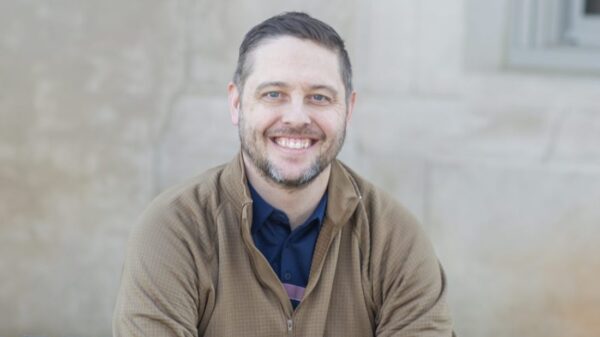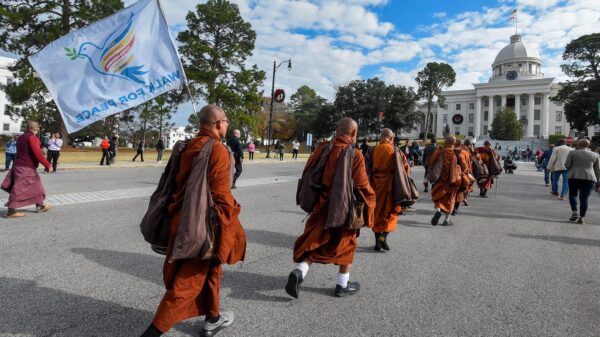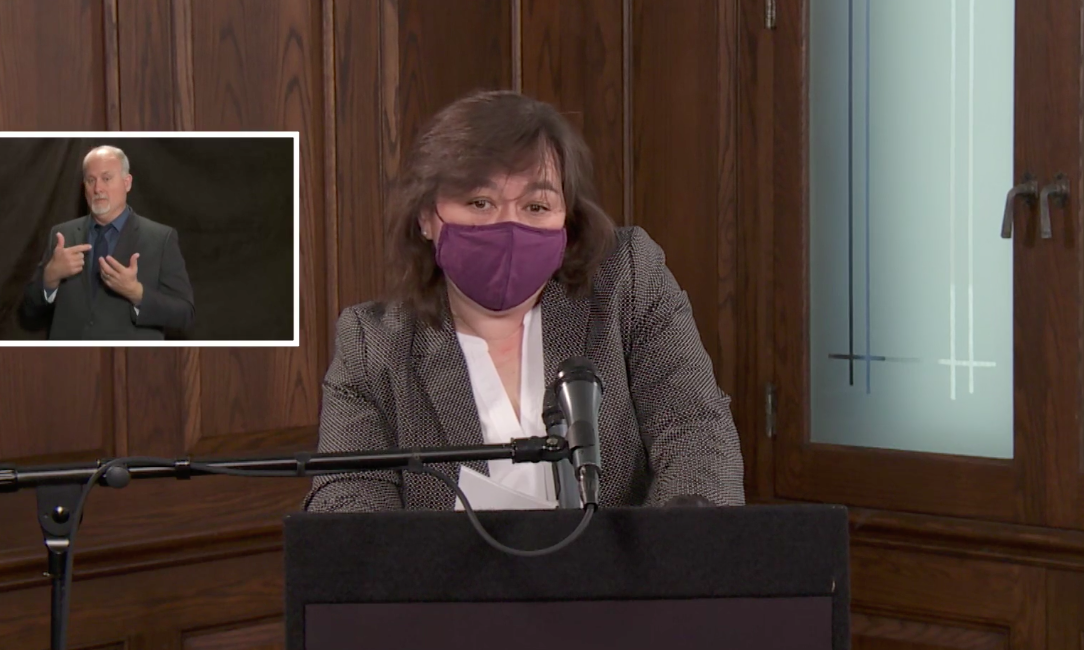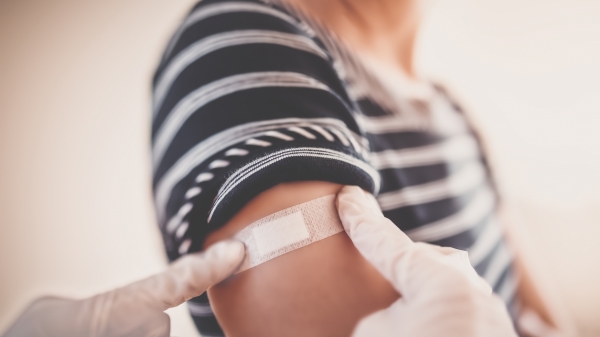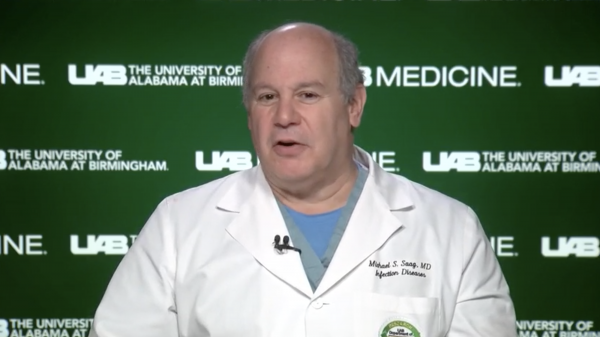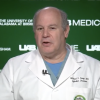A UAB physician pleaded with the public Friday to wear masks and practice social distancing, as hospitals across Alabama are filling up with COVID-19 patients and public health officials prepare for what could be a series of deadly surges after upcoming holidays.
“Don’t give up on us. We’re tired,” said Dr. Sarah Nafziger, co-chair of UAB’s Emergency Management Committee, speaking during a press conference Friday.
Nafziger said hospitals across the state are seeing increases in COVID-19 hospitalizations and explained that the extra care those patients require takes a toll on hospital staff.
Hospitals are also discussing the possibility of having to order postponements of elective procedures as coronavirus hospitalizations continue to increase, Nafziger said. UAB has once again begun converting hospital beds meant for other patients for use by COVID-19 patients, she said, explaining that doing so can strain the hospital’s equipment and staffing resources.
“Until recently, we’ve been very successful in keeping the employee cases down to a minimum,” Nafziger said, but added that community spread of the disease has impacted the hospital’s workers and they’re beginning to see staffing shortages as a result.
“This is why it is so important that we all do our part. To be responsible. Stop the spread of the virus,” Nafziger said, pleading with the public to wear masks and practice social distancing.
“We’re not gonna quit on you. We’re gonna be here for you. We’re gonna take care of you, so please do your part to help us stop the virus so that we can be available to provide all the care that you need. Not just care for COVID,” Nafziger said.
Alabama added 2,463 coronavirus cases on Friday, and hospitalizations reached 1,329. The state hasn’t had that many coronavirus patients in hospitals since Aug. 13, during the summer surge. Huntsville Hospital’s coronavirus hospitalizations were a record-high 235 on Friday.
{{CODE2}}
The state’s 14-day average of new daily cases was a record-high 1,976 on Friday, and the percentage of COVID-19 tests that were positive, averaged over two weeks, was nearly 23 percent. Public health experts say it needs to be below 5 percent or there isn’t enough testing being done and cases are going undetected.
{{CODE1}}
Alabama’s average new reported COVID-19 deaths over the last week is also a record-high of 31. As of Friday, 3,451 people have died from the disease in Alabama, 17 percent of which have been reported within the last month.
Dr. Mark Wilson, Jefferson County’s health officer, speaking to reporters Friday said the county has had more than 30,000 cases and is approaching 300 coronavirus deaths.
“These are people that are loved. It’s a really sad fact going into our holiday season,” Wilson said.
Wilson said the county is averaging more than 300 new cases per day, which is three times the level Jefferson County had in September, “and it is now the highest number per day that we’ve had since the beginning of this pandemic,” he said.
Through contact tracing, it’s clear the rising cases are due to private gatherings, such as parties, receptions and outbreaks within households. He cited recent modeling from Georgia Tech that estimates that with Jefferson County’s current numbers if 10 people gathered there would be a one in five chance one of them would spread coronavirus.
“Fifteen people gathering, that’s one in four who can spread the virus. If there’s a large gathering, like 50 people, there’s a two out of three chance that one of the people in that group is going to spread COVID-19,” Wilson said.
“The rules have not changed. We still know that mask-wearing, social distancing, hand sanitation and avoiding these larger gatherings that are not from your own household are still the most effective ways to keep this virus from spreading,” Wilson said.
Wilson said gathering indoors, in an area with poor ventilation and with people not wearing masks “is simply not a good idea right now.” Wilson said while two vaccines look promising, and the first shipment could soon arrive, supplies will be limited and will go to health care workers most at risk.
“Vaccination for the general public is still a ways off,” Wilson said. “Several months. Maybe even into the late spring or summer.”
Dr. Micheal Saag, infectious disease professor at UAB, speaking during the briefing said the state is seeing a “spike” not a surge.
“The number of new cases, just in the last couple of weeks, has been staggering,” Saag said. “I don’t use that word lightly.”
Saag said many predicted a surge would come after Thanksgiving and Christmas, “but what we didn’t anticipate was the spike before Christmas and before Thanksgiving.”
Cases during a spike are followed by hospitalizations and deaths, Saag said, and if people don’t change behaviors the concern is there will be continued spikes after the upcoming holidays.
“And I’m a little bit overwhelmed, to be honest with you, at what that might look like,” Saag said.
Saag urged the public to wear masks, avoid crowds and gatherings of more than five to 10 people, which is especially important around the holidays.
“I’ve gotten comments from a lot of you who said ‘How can you tell me what to do on my Thanksgiving in my home?’” Saag said. “I’m really not telling you what to do. I’m simply saying that we know our current situation, and we know what works in terms of protecting ourselves.”




